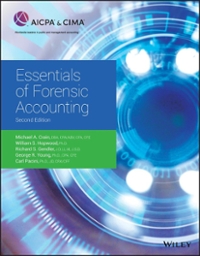Question
Judges' decisions are customarily written and therefore recorded in books used for legal research. These written decisions are called cases, and the books in which
Judges' decisions are customarily written and therefore recorded in books used for legal research. These written decisions are called cases, and the books in which they are published are called case books. These cases are part of the common law. You will read many cases in your study of Hospitality Law. Although at first, they may seem difficult to understand you will soon develop the skill necessary to read them with a high level of comprehension. To understand a case you should attempt to identify four elements as you read it: 1. The facts 2. Issue 3. The judge's decision 4. The reasoning supporting the decision. 5. Conclusion The facts are those circumstances that gave rise to the lawsuit. The issue is the legal question that the parties have asked the judge to resolve. The decision is the judge's response to the issue. The reasoning is the basis and rationale for the decision. After reading the case, consider its implications vis--vis stare decisis, the decision, although involving unknown parties, inform hospitality managers how the law will be applied to their own situations. This enables innkeepers and restaurateurs to predict how the law will be interpreted and to prevent legal disputes before they arise. By understanding the implications of cases, the manager or owner can modify company policies and actions to conform to the law. The conclusion states whether you agree or disagree with the judge's decision and why by writing supporting details.
CASE STUDY #2 : Hutchison v Daredevil Park
The 2003 decision in Hutchison v Daredevil Park illustrates many of the basic negligence concepts discussed above. In August 1997, 49 year old Norman Hutchison suffered a severely broken ankle in an accident while launching himself down a waterslide at Daredevil Park in Wasaga Beach, Ontario. After reviewing the facts of the case, the court found that the injury was caused when Hutchison slipped as he entered the slide improperly. Hutchison alleged that the park owed him a duty of care under the doctrine of occupiers' liability. He alleged that the park failed to discharge this duty in three ways: 1. Through the failure of the slide attendant to instruct him about how to enter the slide, 2. By failing to use proper signage and other warnings to alert him to the hazards of the slide at the entry tub and 3. In not having handrails at the slide entry tub.
The court agreed with the first two allegations but disagreed about the need for handrails. The defendant alleged that Hutchison voluntarily assumed the risk of injury in opting to ride the waterslide. The court reviewed previous cases about voluntary assumption of risk and concluded that it is very rare, in modern times, for a person to truly consent to all the risks of an activity. The court found that Hutchison did not explicitly consent to all the risks of the activity he undertook in riding the slide. The court did, however, find that Hutchison was contributory negligent because he did not ask for instructions about how to get into the slide.
The court attributed 80 percent of the fault to the park under the doctrine of occupiers' liability and 20 percent of the fault to Hutchison under the doctrine of contributory negligence.
In calculating damages, the court made the following findings: - Hutchison was in severe pain for the three days following the accident, and in considerable pain for several weeks afterwards - Hutchison made a full return to most activities including golf, within several months and he was not permanently disabled by the injury to a significant degree and - There were some minor though permanent, after effects of the injury, including numbness in Hutchison's toes and an increased propensity for arthritis in the joint. The court assessed Hutchison's total damages at $45,000. Since Hutchison was contributorily negligent for 20 percent of that amount ($9000), the damages owed to him by Daredevil Park were $36,000. The court also allowed a subrogated claim for medical costs from OHIP and claims as permitted under the Family Law Act for Hutchison's wife and children.
1.The facts (5 marks)
2.The issue(s) (5 marks)
Make sure it is in question format.
3.The court's decision (1 mark)
4.The court's reasoning supporting the decision (3 marks)
5.Conclusion: Do you agree with the outcome? Why or why not? Justify your answer. (6 marks)
a)Agree/not (1 mark)
b)Why or why not (2 marks)
c)Your own personal justification/rationale expanding on why or why not (3 marks)
Step by Step Solution
There are 3 Steps involved in it
Step: 1

Get Instant Access with AI-Powered Solutions
See step-by-step solutions with expert insights and AI powered tools for academic success
Step: 2

Step: 3

Ace Your Homework with AI
Get the answers you need in no time with our AI-driven, step-by-step assistance
Get Started


